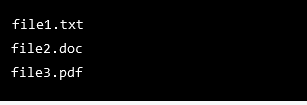Boost Library in C++The Boost C++ Libraries is a collection of free and open-source libraries that provide a wide range of functionality to C++ programmers. Boost is designed to complement the C++ Standard Library and add features that are missing from it. Boost is a community-driven project that has been around for over two decades and has grown to become one of the most popular C++ libraries available today. The library is designed to be portable, efficient, and easy to use, making it a valuable tool for C++ developers of all levels. Features of Boost LibraryBoost provides a wide range of libraries that cover everything from algorithms and data structures to network programming and XML parsing. Some of the most popular Boost libraries include:
Getting Started with Boost LibraryTo get started with Boost, you will need to download the library and install it on your system. Boost is available for a wide range of platforms, including Windows, Mac OS X, and Linux. Once you have installed Boost, you can start using its libraries in your C++ code. To use a Boost library, you will need to include the appropriate header file in your code and link your program with the Boost libraries. For example, to use the Boost.Filesystem library, you would include the following header file in your code: And you would link your program with the Boost.Filesystem library using the following command: Let's take a look at one of the Boost libraries in action: Boost.Filesystem. Boost.Filesystem provides a way to work with files and directories in a platform-independent way. Here's an example of how to use Boost.Filesystem to list all the files in a directory: Output: 
Let's break down what's happening in this code:
ConclusionThe Boost C++ Libraries provide a wide range of functionality to C++ programmers and can be a valuable tool for developing efficient, portable, and easy-to-use C++ code. Boost is a community-driven project that has been around for over two decades, and it continues to grow and evolve with the needs of the C++ community. Whether you are a beginner or an experienced C++ developer, Boost can help you write better code faster.
Next TopicC++ Concurrency
|
 For Videos Join Our Youtube Channel: Join Now
For Videos Join Our Youtube Channel: Join Now
Feedback
- Send your Feedback to [email protected]
Help Others, Please Share










